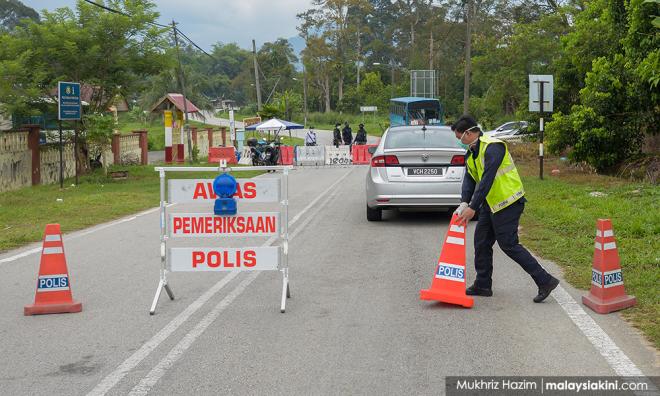
CORONAVIRUS | The government would leave it to the police and Prisons Department to discuss prison overcrowding due to the movement control order (MCO), says senior minister Ismail Sabri Yaakob.
Ismail, who is in charge of security cluster, said this during a press conference in Putrajaya today.
"On the issue of (overcrowding) prisons, we leave it to the police and Prisons Department to discuss social distancing and other safety measures. We leave it to them," he said.
Ismail earlier said the police have options when handling MCO violators, either to issue a RM1,000 fine or to drag them to court where heavier punishments would be imposed.
He also told reporters that the authorities might opt for the heavier option to address the continuous problem.
According to Ismail, a special meeting by senior ministers on the MCO have also discussed about views from the people that RM1,000 was a low amount to deter those who violated the order.
"However, the Act is clear, the compound (as provided by the law) is RM1,000. If we want to change this, it has to be brought to the Parliament (to be tabled).
"So, as of today, the compound is still at this rate. But, as I have said before, the police have the option whether to issue a compound or bring (those caught violating the MCO) to court.
"If the case is taken to court, punishments such as jail terms can be meted out," he said.
The issue of prison overcrowding came to light as the police started arresting those who breached the MCO since it was implemented on March 18.
It also saw the Prisons Department director-general writing a letter suggesting to the court to halt sentencing MCO violators, stressing concern on the risk that new prisoners might trigger an outbreak of Covid-19 in prisons nationwide.
According to a spokesperson of the Prisons Department, there are overcrowding at 50 prisons nationwide. These prisons are intended for 52,000 inmates but today they hold some 73,000 prisoners.
Last week, the federal police had announced they would start imposing a RM1,000 fine to MCO violators instead of charging them in court.
However, during a press conference yesterday, Ismail had said police have decided to take sterner action to encourage higher compliance during the third phase of the MCO, which starts on Wednesday until March 28.
The minister reiterated today it was up to the police to decide whether a compound would suffice for mild offences or take the offenders to court for more serious cases.
However, he stressed that not all the cases that were charged in court were merely for violating the order.
These include offences that are punishable under the Penal Code like obstructing civil servants from conducting their duties.
"There were also cases where suspects rammed into police roadblocks and injured police personnel.
"These are among the things that ended up seeing them (violators) charged in court, and in turn, they get heavier punishments," he said. - Mkini



No comments:
Post a Comment
Note: Only a member of this blog may post a comment.